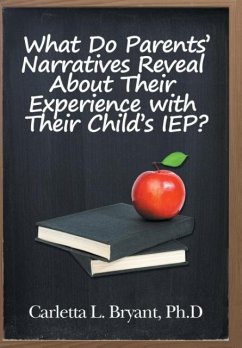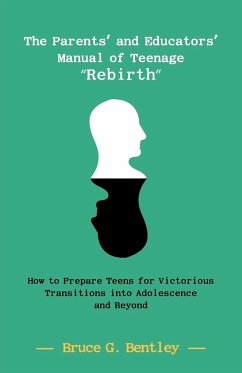In this book a qualitative phenomenological narrative inquiry was conducted. This study is intended to describe and comprehend ten parents' experience during their child's Individualized Education Program (IEP) who are identified under the federal disability category "multiple disability" or also "intellectual disability," grades one through eight. This narrative inquiry not only permitted me to capture the experiences of parents during their child's IEP, but it also illuminated the heartfelt power of their reflective accounts. This study also demonstrated how a researcher's transparent interestedness and multiple identities as a mother of a child who is identified under the federal disability category "multiple disabilities" with an IEP and an authority on education conveys more trustworthiness than the illusion of disinterestedness that has traditionally been practiced in qualitative inquiry. Relationships of trust and longevity are created through these outlets of personal experiences making it easier for unearthing an oppressive voice (Butler-Kisber, 2010). Listening to not only what is being said but also to what is being done throughout the IEP via a parent's perspective can be described only through their lenses. Parents' narratives of their child's IEP produce a gateway to their experience. Excluding such possibilities may be the elucidation that increases knowledge to eradicate maladaptive practices and affirm or also develop the positive behaviors needed to afford parents a productive and positive experience in the IEP (Garriott, Wandry, & Snyder, 2000).








